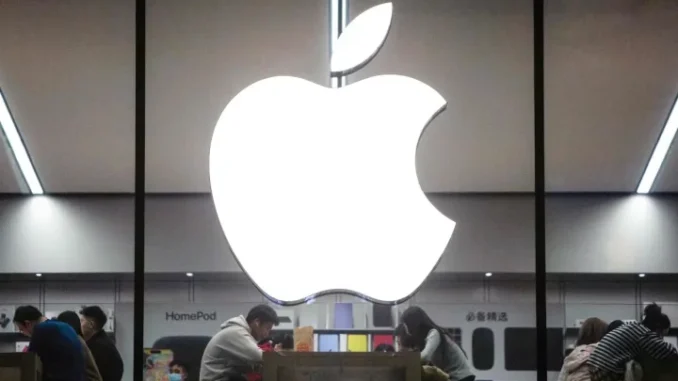
The government of the Democratic Republic of Congo is accusing Apple of using “illegally exploited” minerals extracted from the country’s embattled east in its products, lawyers representing the African country said Thursday.
The DRC’s lawyers have sent Apple a formal cease and desist notice seen by AFP, effectively warning the tech giant it could face legal action if the alleged practice continues.
The Paris-based lawyers for the DR Congo accused Apple of purchasing minerals smuggled from the DR Congo into neighbouring Rwanda, where they are laundered and “integrated into the global supply chain”.
Contacted by AFP, Apple pointed to statements from its 2023 annual corporate report regarding the alleged use of so-called conflict minerals that are crucial for a wide range of high-tech products,
“Based on our due diligence efforts… we found no reasonable basis for concluding that any of the smelters or refiners of 3TG (tin, tantalum, tungsten and gold) determined to be in our supply chain as of December 31, 2023, directly or indirectly financed or benefited armed groups in the DRC or an adjoining country,” it said.
The DRC’s mineral-rich Great Lakes region has been wracked by violence since regional wars in the 1990s, with tensions reheating in late 2021 when March 23 Movement (M23) rebels began recapturing swathes of territory.
The DRC, the UN and Western countries accuse Rwanda of supporting rebel groups, including M23, in a bid to control the region’s vast mineral resources, an allegation Kigali denies.
“Apple has sold technology made with minerals sourced from a region whose population is being devastated by grave human rights violations,” the DRC’s lawyers wrote.
Sexual violence, armed attacks and widespread corruption at sites providing minerals to Apple are just some of the claims levelled in the letter.
Macs, iPhones, and other Apple products are “tainted by the blood of the Congolese people”, the DRC’s lawyers said.
Notoriously insufficient
French lawyers William Bourdon and Vincent Brengarth sent the formal notice this week to two Apple subsidiaries in France and lawyer Robert Amsterdam to the tech company’s US headquarters.
“Apple has consistently relied on a range of suppliers that buy minerals from Rwanda, a mineral-poor country that has preyed upon the DRC and plundered its natural resources for nearly three decades,” they wrote.
The DR Congo is rich in tantalum, tin, tungsten, and gold – often referred to as 3T or 3TG – all minerals used in producing smartphones and other electronic devices.
The tech giant’s efforts to ethically source its minerals are “notoriously insufficient,” said Bourdon and London-based Amsterdam.
“Apple seems to rely mainly on the vigilance of its suppliers and their commitment to respect Apple’s code of conduct,” reads the official letter.
But both their suppliers and external audits appear to rely on certification from the Tin Supply Chain Initiative (ITSCI), “which has been shown to have numerous and serious shortcomings,” said the formal notice.
The ITSCI programme is one of the main mechanisms set up over ten years ago to ensure the supply of “conflict-free” minerals in the DRC, according to the British NGO Global Witness.
In April 2022, Global Witness accused ITSCI of contributing to the laundering of conflict minerals, child labour, trafficking and smuggling in the DRC.
Apple is not the only major company relying on the “flawed” system, said Global Witness.
Tesla, Intel, and Samsung are among the companies that depend on ITSCI, but Global Witness’s report revealed that “ninety percent of the minerals” from specific mining sites reviewed by the programme did not come from validated mines.
The DRC’s formal notice to Apple includes questions about “3T minerals used in Apple products” and demands that the tech company respond “within three weeks.”
“All legal options are on the table,” the lawyers told AFP.
Blood minerals
Growing demand for cobalt and copper to power so-called clean energy, including rechargeable batteries, has also led to forced evictions, sexual assault, arson and beatings in eastern DRC, according to a 2023 Amnesty International Report.
M23 currently controls large swathes of North Kivu and is encircling the provincial capital of Goma, where more than one million displaced by the war have crammed into desperate, temporary camps.
The UN said in 2023 that people living in eastern DRC face unheard-of violence, naming it one of the “worst places” in the world for children.
Minerals are transported into Rwanda, where they are laundered to outmanoeuvre oversight meant to prevent the sale of “conflict minerals,” says Global Witness.
“The responsibility of Apple and other major tech manufacturers when they use blood minerals has for too long remained a black box,” the lawyers told AFP.

Leave a Reply